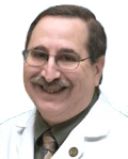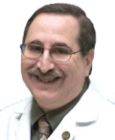Psychiatry
Excitement and Concerns About Therapies Using Psychedelics
Should we be concerned about the risks of therapeutic psychedelic trips?
Posted July 17, 2018
Data are accumulating to support the effectiveness of psychedelic drugs like psilocybin, LSD, and ayahuasca in treating individuals with certain psychiatric problems, including depression, anxiety disorders, and addictions. The drug is not casually administered in these cases; rather it is given during a several-day course of psychotherapy. Clinical trials are underway, and the possibility is quite real that the Food and Drug Administration (FDA) could approve one or more of these agents if phase-3 studies show effectiveness.
Earlier research suggests that one or two courses of treatment with a psychedelic may have long-lasting effects. In most of these studies, a course of treatment includes two days of preparatory therapy and supervised exposure to the drug, followed by a few sessions integrating the experience. Psychedelic therapy may work quickly in alleviating symptoms. As discussed in a previous post, these drugs appear to stimulate neuron cell growth and increase neuronal connections. They likely influence the brain in ways that are different from currently approved therapeutic agents.
Some of the world’s top mental-health researchers, including Tom Insel, a former director of the National Institute of Mental Health (NIMH), are excited about the therapeutic potential of psychedelic drugs. In fact, Insel is a scientific advisor of a company, COMPASS, that is investing in training therapists to properly administer the therapy that accompanies the drug treatment. Michael Pollan has recently published a fascinating book, How to Change Your Mind: What the New Science of Psychedelics Teaches Us about Consciousness, Dying, Addiction, Depression, and Transcendence, that reviews this field and describes his own recent experiences with several psychedelics.
However, both authors of this blog are concerned about this rapidly developing area. Why?
These drugs are powerful and may literally change a person. Most therapeutic drugs help reverse symptoms of disorders, but psychedelics, in addition to ameliorating symptoms, may actually change a person’s personality and views about the purpose of life. The drugs induce a mystical “trip,” which can be powerful and life changing. Several investigators who are so passionate about these drugs changed career directions as a result of their personal experiences with them. This power of psychedelics appears to be beyond what we see with current medications. For severely ill individuals, it is certainly possible that the effects can be therapeutic and lifesaving. The benefits may outweigh the risks for such severely ill persons. But do the benefits outweigh the risks in mildly ill persons or in individuals who are healthy but want to experience the mind-expanding effects of these drugs?
It would be exciting if one could develop drugs that separate the therapeutic properties from the psychedelic properties. This may be possible, but current data suggest that the mystical experience is necessary for the therapeutic benefit.
These mystical experiences can have significant side effects. No matter how carefully the drugs are administered in terms of a comfortable setting, individuals still can have frightening, bad trips and be left with flashbacks. Although these may not occur routinely, the frequency of such side effects has not been well characterized.
One other major concern is that many who support the use of these drugs advocate that they be made available to healthy individuals who wish to expand their creativity. In his book, Pollan indicates that many in the psychedelic community are interested in allowing broad exposure to these mind-altering and -expanding drugs.
If these drugs are approved as therapeutic treatments, will pharmacological-grade drugs become easily available and used and abused recreationally? We suspect that this will be the case. If so, should this be part of the discussion regarding the medical development of these drugs? There are legitimate arguments on both sides.
This area is scientifically exciting but also provocative and not without societal risks.
This column was written by Eugene Rubin M.D., Ph.D. and Charles Zorumski M.D.
References
Pollan, M. (2018). How to Change Your Mind: What the New Science of Psychedelics Teaches Us about Consciousness, Dying, Addiction, Depression, and Transcendence. New York, NY: Penguin Press.


